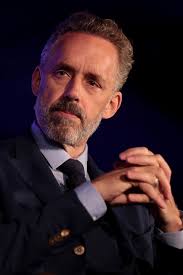Jordan Peterson: Understanding His Influence in Modern Society

Introduction
Jordan Peterson, a Canadian psychologist and professor, has emerged as a prominent figure in contemporary discussions surrounding psychology, philosophy, and cultural criticism. His blend of psychological insights with socio-political commentary has sparked widespread attention, making him an influential voice in both academic and public spheres.
Background and Career
Peterson gained fame with his critiques of political correctness and his opposition to compelled speech legislation in Canada in 2016. His book, “12 Rules for Life: An Antidote to Chaos,” published in 2018, became a bestseller, resonating with individuals seeking guidance in tumultuous times. In it, he uses principles from psychology, mythology, and religious traditions to provide practical advice on living a meaningful life.
Current Engagements
In recent months, Peterson has engaged in numerous public debates and discussions, addressing topics such as free speech, identity politics, and personal responsibility. His lectures continue to draw large audiences, both in person and online, reflecting a growing interest in his methodology and viewpoints. Recently, Peterson has also delved into the psychological impacts of the COVID-19 pandemic, discussing how societal shifts have influenced individual mental health.
Controversies and Criticism
Despite his popularity, Peterson’s work has not been without controversy. Critics accuse him of promoting traditional gender roles and being dismissive of issues related to race and gender identity. Nonetheless, he maintains a substantial following who appreciate his perspective that advocates for personal accountability and the importance of establishing meaning in one’s life.
Conclusion
Jordan Peterson’s role as a public intellectual is significant, regardless of the polarized opinions he evokes. His insights into psychology and culture continue to resonate with many, offering a framework for those grappling with the complexities of modern life. As discussions around mental health, personal responsibility, and societal values evolve, Peterson’s contributions will likely continue to be relevant and provoke thought within various circles.









